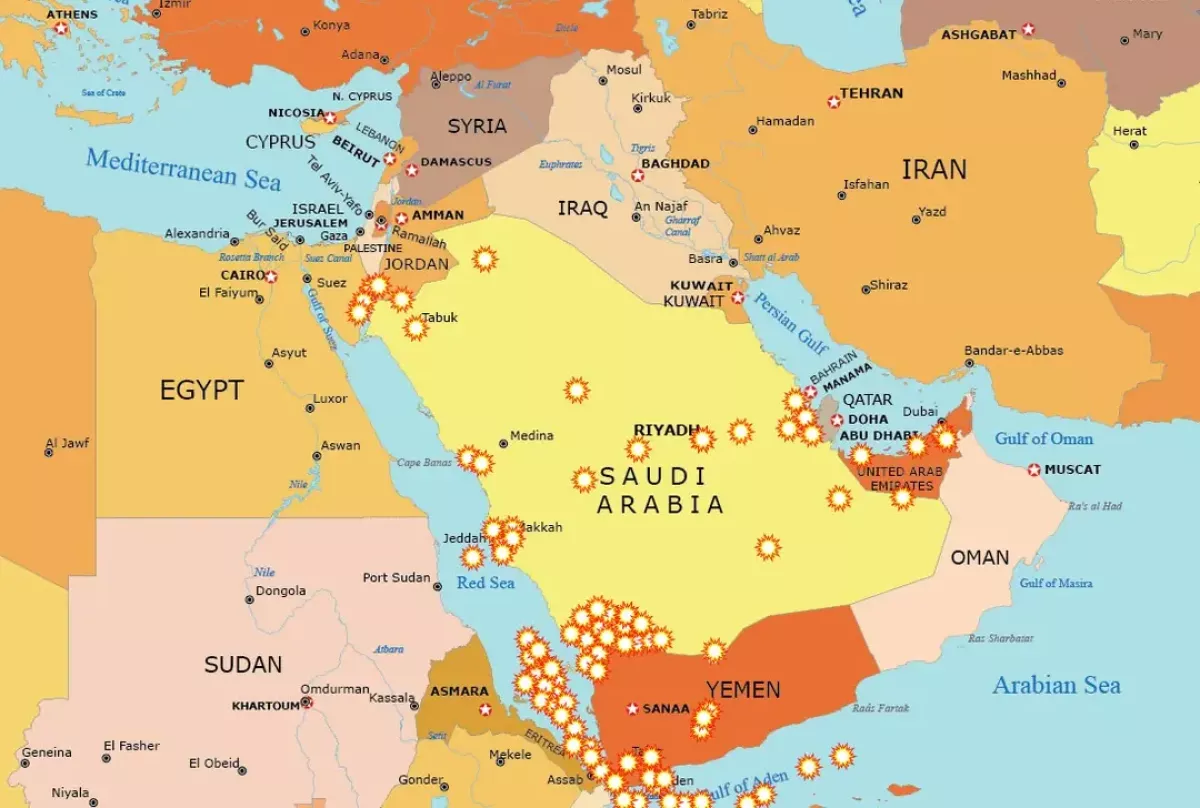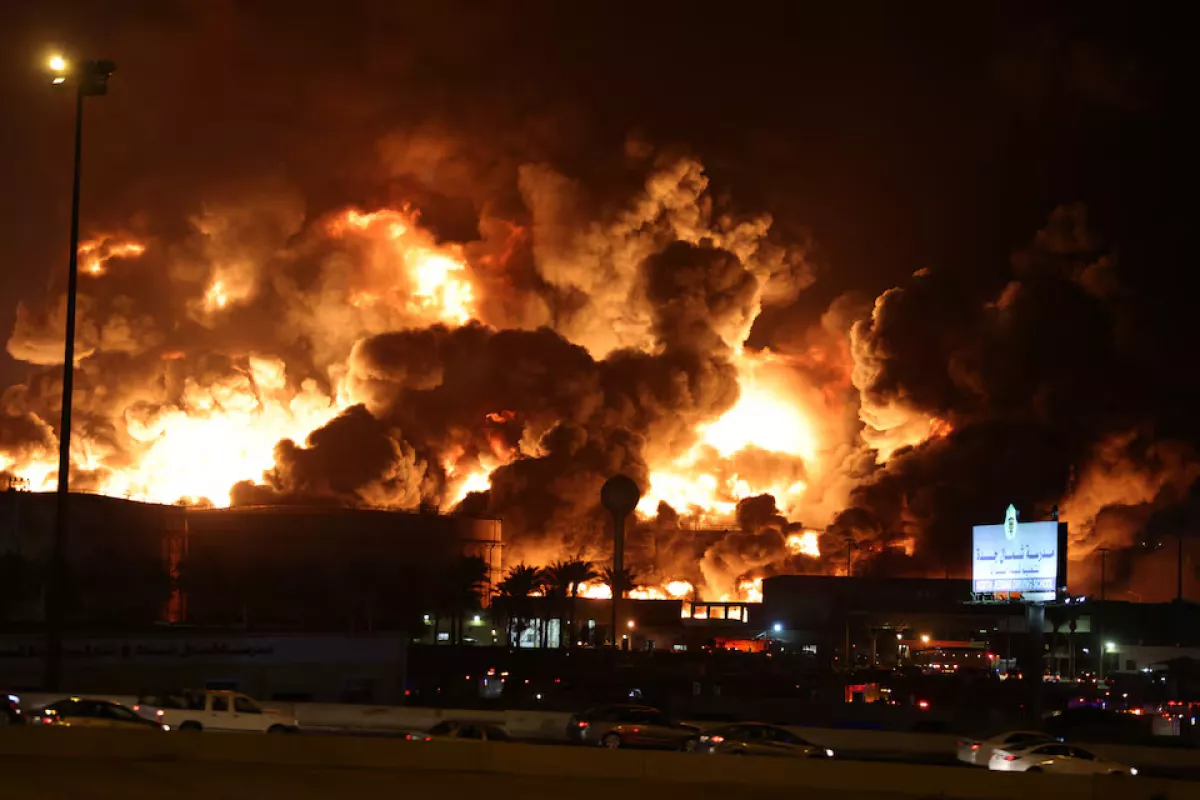Does Saudi Arabia want to strike a peace deal with Houthi rebels? Peace through a war
In August 2024, Western media sources reported that Saudi Arabia, through diplomatic channels, pushed Russia not to dispatch weaponry to the Iranian-backed Houthi rebels group based in Yemen amid the ongoing Red Sea attacks and the Israel-Hamas war in the Gaza Strip.
First, in July 2024, the United States (US) intelligence suggested that Russia is preparing to supply Houthi rebel groups in Yemen with advanced anti-ship missiles following Washington’s firm support to Ukraine’s most recent incursion into the Kursk region. While the Western-supported Ukraine's operation in the Kursk region largely switched the main theater of the war, it emboldened Russia to open another front against the Western interests and allies, such as providing support to Iran and Iranian-backed proxy forces in the Middle East.
Consequently, Russia, in recent years, has put enormous efforts into enhancing its influence overseas, particularly in the Gulf region, by boosting ties with Saudi Arabia and the United Arab Emirates (UAE). As such, the Riyadh – Moscow partnership in economy, energy, and defense gained more impetus despite the vocal opposition of the US. However, Moscow’s and Riyadh’s visions regarding the regional security architecture in the Gulf region vary significantly. Despite Russia’s strive to keep its distance from events in the volatile region, maintaining channels of communication with all parties, its strategic proximity to Iran and Saudi Arabia's long-term rivalry with Iran and its proxy groups creates obstacles to deepening Moscow-Riyadh ties.

Notwithstanding its long-term brutal war with Houthi rebels since 2015, Riyadh has been pushing for rapprochement with the rebel group in the last two years to tackle the worsening security gap in the Gulf region. However, Houthis’ violent attacks on the Red Sea since the outbreak of the Gaza War raised the temperature dramatically, leading to the US-led Western coalition’s continuous missile attacks on Yemen since February 2024. Despite the intense missile raids on Houthi military targets, the attacks on commercial vessels reached a new level with the alleged support of Russian military instructors dispatched to Houthi-controlled Yemen territories and operating as advisors.
Although the “exact duties” of Russian military advisors in Yemen are murky, intelligence reports suggest that they were stationed in the country since early 2024 to assist the Houthis in their targeting of commercial shipping. Indeed, Russia’s growing activity in Yemen and verified reports of its commitment to arm Houthi rebels boosted concerns in Saudi Arabia as it steadily normalized ties with the arch-rival Iran in March 2023 and was negotiating a long-term peace plan with the Houthi government. Now, with Moscow's interference in Yemen, Houthis now seem to be drifting away from a commitment to a negotiated peace.
Until recently, Riyadh was optimistic that the Red Sea crisis would not be an obstacle in the peace process with Houthis and, therefore, cautiously watched the Western coalition's ambush on Houthis. Indeed, due to its acute risks, Saudi Arabia is reluctant to embroil itself in another intractable conflict with the rebels.

In 2019, Houthi rebels’ deadly drone attacks on Saudi Aramco’s oil refineries and Saudi’s Western allies’ ignorant reaction persuaded Riyadh to shift its approach toward the Yemen crisis by cooperating with countries like Iran, Russia, and China. The pragmatic decision to keep dialogue open with Iran enabled Riyadh to minimize the risks of escalation for now.
Another important reason for Riyadh's enthusiasm in mending ties with Houthis and strong opposition to Russia's weaponry shipments is its Vision-2030 program, a much-anticipated and ambitious plan to diversify its economy. Hence, the renewal of clashes with Houthi rebels in the close vicinity would significantly undermine Riyadh's mid-term plans.
In this context, Russia's decision to postpone the arms transfer to Houthis, for now, is unlikely because of the sole pressure from Saudi Arabia, but a severe warning from the US convincing Moscow to restrain. However, it is highly arguable if Moscow will keep demonstrating restraint in the next few months, given Ukraine’s growing military presence on its soil being armed with US-made weaponry and equipment. If Russia fails to thwart Ukraine from the Kursk region soon, it may start arming pro-Iranian proxy groups in the Middle East to exert more pressure on the US and its regional allies.
As such, Riyadh is in a rush to finalize the peace talks with the Houthi government before it acquires modern weaponry from Russia or any other country. Moreover, Riyadh apprehends that in case of a Houthi attack on Saudi Arabia, the US-led Western coalition's response will be similar to 2019 incidents that emboldened the kingdom to seek partnership with other non-regional powers to decrease dependence on Washington.








